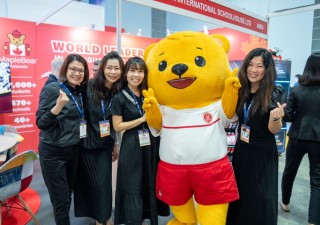Ruling On Wonton Noodles Business Trademark Case Affirms SG’s Hard-Line Stance On Goodwill
22 August 2022

According to Melvin Pang, litigation director at Amica Law in Singapore, the recent ruling in a trademark dispute involving a wonton noodles hawker stall family business affirms Singapore’s prevailing hard-line approach to goodwill.
Such approach, he said, distinguishes between goodwill and reputation.
The case stemmed from an opposition against a trademark application filed by sisters Ng Mui Hong and Ng Mei Ling for their eatery Char Siew Wantan Mee in 2018.
They are the daughters of the late Ng Ba Eng, operator of Eng’s wonton noodles hawker stall at Dunman Road Food Centre. Previously, their brother Desmond Ng formed a business partnership with Pauline New. Her husband Jason Sim invested in their father’s wonton noodles business, allowing it to expand and relocate to 287 Tanjong Katong Road in 2012. It was also renamed to Eng’s Noodles House.
Unfortunately, the partnership did not succeed. Eng’s Noodles House closed shop in February 2018.
The following month, the Ng sisters opened their own wonton noodles eatery where Desmond also now works. Their father passed away in 2013.
New opposed the sisters’ application to register three trademarks for their new eatery: “ENG’S,” two Chinese characters meaning “glory” and “high” and a third mark made up of the Chinese characters and the words. Components of these marks appeared at the signage of their father’s old hawker stall.
New said the marks being sought for registration may confuse customers with Eng’s Noodles House and that there could be risk of damage to its goodwill or reputation.

The court ruled in favor of the Ng sisters. Intellectual property adjudicator Andy Leck stated that by the time the sisters applied for the trademark registration, New’s business had shut down. This means there is no longer any goodwill involved in connection with the eatery.
“Under the hard-line approach, goodwill has an inseparable connection to a business. It must be shown that goodwill attaches to a business at the relevant date - when the acts complained of were carried out – in this case, it would be the application dates. If a plaintiff has no business in Singapore, there is no substratum here to which goodwill can attach and hence, there is no goodwill in Singapore, even if the plaintiff can show that his goods or services enjoy a reputation amongst the public in Singapore,” explained Pang.
However, this kind of approach to goodwill is now being widely criticized for being out of touch with commercial realities. In fact, common law jurisdictions such as Australia, Hong Kong and India have tossed this approach out of the window in favor of the soft-line approach to goodwill.
“The soft-line approach recognizes that in the modern commercial landscape, goodwill may transcend territorial boundaries. It remains consistent with the definition of goodwill as an ‘attractive force that brings in custom,’ as significant reputation even without business activity is more than capable of drawing in customers,” said Pang.
- Espie Angelica A. de Leon






